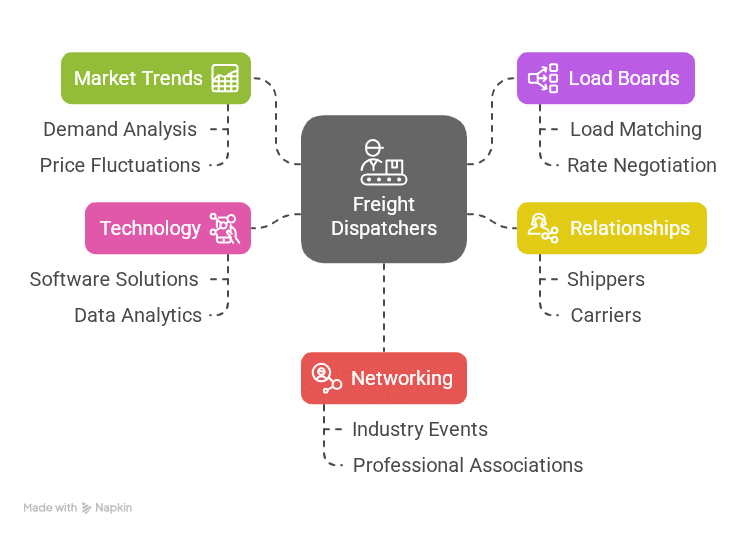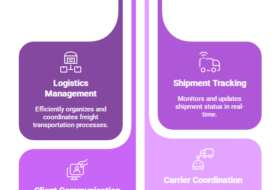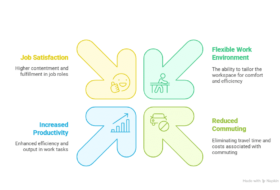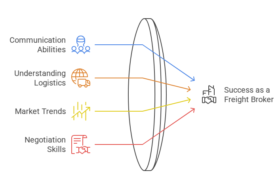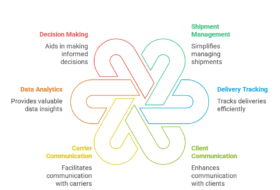Table of Contents
- Introduction
- Leveraging Load Boards for Dispatchers
- Building Direct Shipper Relationships
- Partnering with Brokerage Firms
- Networking in the Trucking Industry
- Utilizing Carrier Relationships
- Conclusion
Introduction
Freight dispatchers play a critical role in the logistics industry, connecting truck drivers with profitable loads to keep goods moving efficiently. One of the most important tasks for dispatchers is finding high-value loads that maximize revenue for carriers while meeting delivery timelines. But how do freight dispatchers consistently secure these opportunities in a competitive market? This blog explores five proven methods freight dispatchers use to find lucrative freight, ensuring drivers stay on the road and businesses thrive. By mastering these strategies, freight dispatchers can optimize operations and build lasting success.
1. Leveraging Load Boards for Freight Dispatchers
Load boards are the backbone of load sourcing for many dispatchers. These online platforms, such as DAT, Truckstop.com, and 123Loadboard, serve as marketplaces where shippers and brokers post available freight.
Dispatchers use load boards to filter loads based on criteria like location, weight, equipment type, and payout. Advanced features allow freight dispatchers to compare rates, check market trends, and identify high-demand routes. For example, DAT’s load board provides real-time data on lane rates, helping freight dispatchers negotiate better deals. While load boards require subscriptions, they offer a fast, accessible way for freight dispatchers to find high-value loads, especially for independent operators or those new to the industry.
2. Building Direct Shipper Relationships
Another effective strategy for dispatchers is cultivating direct relationships with shippers.
By working directly with manufacturers, retailers, or warehouses, dispatchers can secure consistent, high-paying loads without broker commissions cutting into profits. Building these relationships requires freight dispatchers to demonstrate reliability, professionalism, and an understanding of the shipper’s needs. For instance, freight dispatchers may visit local businesses, attend trade shows, or use LinkedIn to connect with supply chain managers. Once established, these partnerships provide freight dispatchers with a steady stream of loads, often at premium rates, and reduce reliance on third-party platforms. Direct shipper contracts also foster trust, ensuring long-term collaboration.
3. Partnering with Brokerage Firms
Dispatchers often collaborate with brokerage firms to access a broader pool of loads. Brokers act as intermediaries, matching shippers with carriers, and freight dispatchers can tap into their networks to find high-value opportunities. While brokers take a commission, they save freight dispatchers time by handling load sourcing and negotiations. Dispatchers must choose reputable brokers with a track record of transparency and fair rates.
Regular communication with brokers allows dispatchers to stay informed about available loads, especially in high-demand regions or for specialized freight like refrigerated or oversized cargo. This partnership ensures dispatchers can quickly fill trucks with profitable assignments.
4. Networking in the Trucking Industry
Networking is a powerful tool for dispatchers looking to uncover hidden load opportunities. By attending industry events, joining associations like the Transportation Intermediaries Association, or engaging in online forums, dispatchers can connect with shippers, carriers, and other logistics professionals. These connections often lead to referrals or exclusive load offers not listed on public platforms. For example, a freight dispatcher who builds a rapport with a regional carrier might gain first access to overflow loads.
Networking also helps dispatchers stay updated on market trends, such as seasonal freight surges, enabling them to secure high-value loads before competitors. A strong network is a long-term asset for any dispatcher.
5. Utilizing Carrier Relationships
Freight dispatchers often work closely with carriers who have available trucks and need loads. Carriers may directly contact freight dispatchers when they have idle vehicles, trusting them to find profitable freight quickly.
By maintaining strong relationships with carriers, dispatchers gain a reputation for reliability, ensuring they’re the first point of contact for load requests. For instance, freight dispatchers might prioritize carriers with specialized equipment, like flatbeds or reefers, to match them with premium loads. These relationships allow freight dispatchers to negotiate better rates and secure consistent work, benefiting both the dispatcher and the carrier. Trust and communication are key to making this strategy successful.
Conclusion
Freight dispatchers are the unsung heroes of the trucking industry, using their expertise to find high-value loads that keep the supply chain moving. By leveraging load boards, building direct shipper relationships, partnering with brokers, networking, and utilizing carrier connections, freight dispatchers can consistently secure profitable freight.
These five strategies empower dispatchers to navigate the competitive logistics landscape, optimize routes, and maximize earnings for carriers. Whether you’re a seasoned freight dispatcher or just starting out, adopting these methods will help you thrive in this dynamic industry. Stay proactive, build strong relationships, and watch your dispatching business soar.
Growth + Change = Opportunity! How are you going to capitalize on the opportunity as a freight broker, agent, dispatcher or box truck carrier?
Enroll in a course today and get a Shippers List for free! Use Code: freeship


